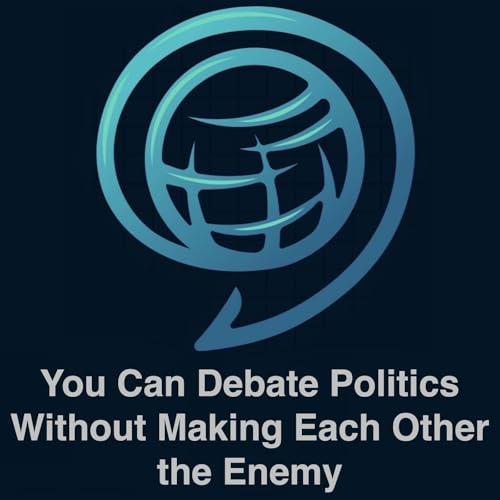Send us a text
Feeling tugged to pick a side—left or right, secular or religious, old school or ultra-online? We start the year by stress-testing a simple idea: friendship can thrive across deep differences. On one mic, a progressive Christian. On the other, a conservative atheist. What keeps us laughing, learning, and listening when the world rewards outrage?
We warm up with Rose Bowl nostalgia, family fandoms, and New Year travel plans, then get practical about resolutions that stick. One of us lays out a straightforward system—write “I will” goals, set dates, build a strategy, revisit often. The other leans on Stoicism’s clean rule: discipline today is love for your future self. That shift turns willpower into care and makes everyday choices—like what you reach for in the kitchen—feel purposeful, not punitive.
From there, we swing through a stack of book recommendations that jump from Vonnegut to Postman, from Orwell to Bart Ehrman and Robert Wright, plus a detour into Cormac McCarthy. Reading logs help us gift by taste, not trend, and we share a favorite memory of trading Clueless for Bollywood during a quiet college break. Then we face the present: 2025’s creators, K‑pop universes, Roblox worlds, and the “reads Reddit stories” genre. We’re honest about what we don’t get and curious about why it works.
Finally, we rewind to 1995—Windows 95, Seinfeld and Friends, Braveheart, Seven, the OJ verdict, Oklahoma City, Jerry Garcia’s passing, and even Mississippi’s late ratification of the 13th Amendment. The comparison sparks a bigger question: which AI-era startups are today’s eBay, hiding in plain sight? Along the way, a playful riff on bizarre laws reminds us how systems and habits calcify—and why pruning matters.
If you like thoughtful conversation with warmth, candor, and a little chaos, you’re in the right place. Follow Living on Common Ground, share it with a friend, and leave a review telling us one resolution your future self will thank you for.
©NoahHeldmanMusic
https://livingoncommonground.buzzsprout.com
 Jan 29 202644 mins
Jan 29 202644 mins Jan 22 202649 mins
Jan 22 202649 mins 53 mins
53 mins Jan 8 202648 mins
Jan 8 202648 mins Jan 1 202645 mins
Jan 1 202645 mins Dec 25 202520 mins
Dec 25 202520 mins 43 mins
43 mins Dec 11 202548 mins
Dec 11 202548 mins
